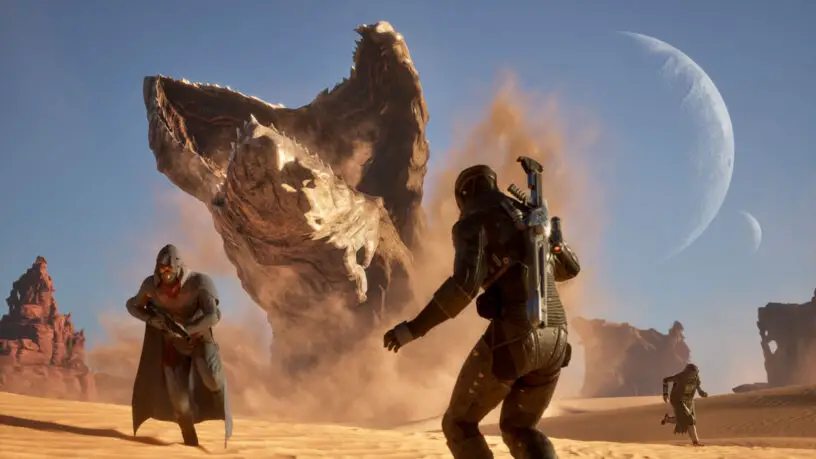While I’m generally okay with a creative team taking particular liberties on an existing property, so long as the essence of the original is maintained—and there is a sense that the creators of this open-world survival MMO game understand what made people love Dune to begin with—it begs of a few questions: Is this new project authentic enough to the primary source material to provide a genuine Dune experience? How much does authenticity matter or concern the player-base if the game is spectacular in other areas? Well… the recently released Dune: Awakening, developed by Funcom, takes its popcorn liberties with Frank Herbert’s Dune and manages to wow in certain aspects of the game, but falter in a few others. After playing the game for over 30 hours, and looking at the full package, here’s my take:
Gameplay
What better place than Arrakis to build a survival game around?
Dune: Awakening is exactly that, a survival game set on the planet Arrakis. After building a character, selecting your character’s background, and choosing an initial class (through a comprehensive and fairly in-depth set of character customization options), the player is set out on a quest by the Reverend Mother—an influential and powerful Bene Gesserit—to “discover the Fremen” and “wake the sleeper.” Your transport ship gets shot down, and you are dragged to safety by a character wise to the ways of the Fremen, named Zantara—and so begins the narrative portion of Dune: Awakening.
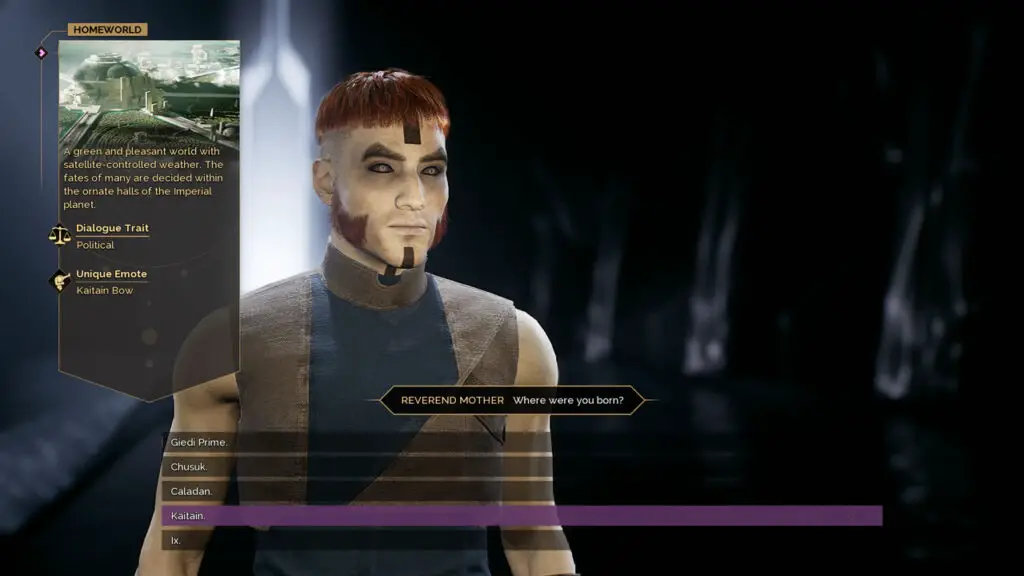
Early in the game, one of the first things that drew my attention was class selection. I feel I have to give my quick take on this game element, as it was an element that felt a tad unnecessary for one reason in particular: All players will be able to obtain every class in the game world… so in a sense, players are initially picking a class that they believe will best serve them in the early stages of the game. Personally, the all-access class trees puts me off a bit, even if players are unable to fully spec every class tree. Full access to all class trees takes away from uniqueness of each of the classes; this makes choices not as impactful, doesn’t gel narratively with Frank Herbert’s Dune, reduces replayability, and ends up creating a homogenized dynamic where everyone selects the same abilities—the best ones to defeat other players in PvP (Player versus Player). Though, considering the size of the class skill trees, and the fact that class selection makes little difference narratively, I can see why Funcom decided to go this route.

Survival
As the player first sets foot on Arrakis, survival becomes the forefront of their journey. Surviving the burning heat… surviving the harsh environment… surviving the flesh ripping sandstorms… surviving the heights… surviving the worm… surviving the enemy combatant scavengers and Sardaukar ships that send down CHOAM mercenaries… and most critically, surviving the water-scarce deserts of Arrakis.
As a character mentions in the game, “Water is the treasure of Arrakis,” not spice. With that said—and with water being particularly emphasized as an important resource in the game—it seems that water is more so plentiful than scarce considering the amounts of this resource each player consumes throughout a playthrough, ranging from hundreds of thousands of liters to millions. While this is a breakaway from Frank Herbert’s Dune lore, the water system in Dune: Awakening still gave me the feeling of scrounging through the desert for moisture and extracting every last drop of liquid from my character’s wastes that I could possibly contain.

On top of that, Dune: Awakening is the best feeling survival genre game that I’ve played—and I’ve played a lot. Rather than being subject to terribly constructed gameplay mechanics where you need to eat, drink, and pee every two minutes, as seen in other survival games, the player is the mechanism for their own survival in Funcom’s Dune: Awakening. Get off the sand if you hear Shai Hulud tunneling through the ground. Hide in the shadows in the heat of the day if you’re on the verge of heat stroke. Take shelter in the midst of a sandstorm to save yourself from being torn apart. Conserve stamina and energy when climbing to avoid falling. Seek patches of dew tipped flora if you’re on the verge of dehydrating, etc… etc….
While there certainly is a grind in the game—mainly for advancing through the technology and building skill trees—Dune: Awakening feels like a mechanically solid, and fair survival game, while still maintaining the edge and tension of surviving on a deadly planet such as Arrakis. For that, I give the game mad props!
Combat
The other slices of Dune: Awakening’s gameplay-pie are combat, exploration, and narrative engagement. Combat, with a mixture of ranged, melee, and player abilities feels great in parts, and average in other parts. Attacking slow to penetrate shields—a tactic straight out of the Dune books—is a thing in this game, and I’m happy to report that it’s a satisfying feeling to break through an enemy’s shields using a slow blade at the correct time. The rest of the melee combat; parries, basic attacks, and dodges plays out as one would expect, resulting in an alright melee system, but never beyond that. Ranged weapons and combat—though there are a moderate variety of firearms to choose from—end up reaching only a rudimentary third person shooter level, which I neither condemn nor strongly commend. To vary combat moderately, players are able to select different skills from class trees.

Two skills can be slotted to begin with, and eventually a third skill can be slotted to enhance either PvE (Player versus Environment) or PvP combat. As to what you’ll be fighting in the game, players will encounter a variety of enemy types, such as swordsmen, lasgunners, heavy gunners, snipers, shielded fighters, boss characters with abilities similar to the player’s skills, and of course, other players. There’s a good variety at the moment, but perhaps, new or rather more gameplay realized elements can be added in the likeness of Dune, for example: subterfuge or an actually working clandestine mechanic… sneaking in the game, at least in my playthrough, did not work well.
Exploration
Exploration, the other key pillar of Dune: Awakening, is implemented well, and is a large chunk of what players will be doing throughout their play time. The game has a large map and lots of points of interest to explore, including shipwrecks, scavenger camps, smaller camp sites, faction bases, science installations, landmarks, Fremen ruins, underground caves, and the endgame deep desert which changes on a weekly basis. Each of the points of interest or really the entire map, environment included, carries useful materials and items which the player will need to acquire in order to master the ways of Dune: Awakening’s Arrakis. Exploring this vast playable area feels truly immersive.
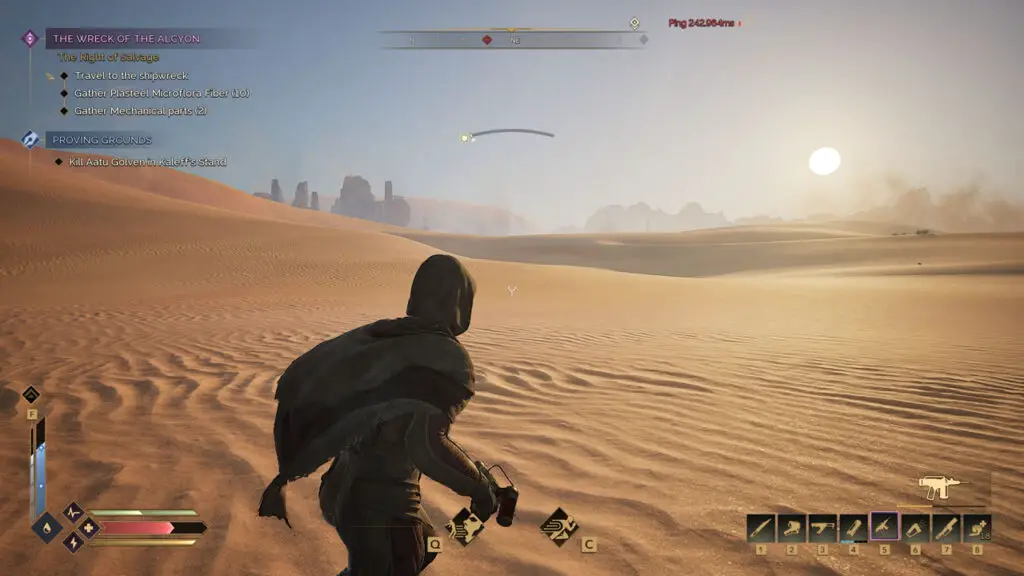
What is not designed as well are the dialogue choices that players are able to select from, as they advance through the game’s narrative. It simply does not live up to the kind of characterization created in Frank Herbert’s Dune, and as showcased in numerous Dune adaptations that have been developed since. Maybe I’m expecting too much RPG out of a survival game but seeing as player dialogue choices are a feature developed for Dune: Awakening, it’s part of the experience. The dialogue options that the player can select from are generally very dry, and most are simply a means of initiating exposition.
Some interactions do not fit with Dune themes, for instance, the Harkonnen recruiter in Anvil—recruiter being the keyword—or a general feeling of salesmanship among the NPC (non-player character) dialogue, rather than a feeling of seriousness surrounding a war of assassins. In a property such as Dune, where eccentricity and exotic personalities are staples of the narrative, I feel a better job can be done with the narrative elements in the game. Though, some of the story moments after part one align with the outlandish and weird narrative themes of Dune. Also, Funcom did a phenomenal job connecting to Dune themes in another facet of Dune: Awakening….
Sound and Visuals
Anyone else willing to hang a portrait of the desert?
Wow! The aesthetic and sounds of Dune: Awakening are amazing. Science fiction bliss…. It’s still hard for me to believe—even after seeing it first-hand in this game and in Funcom’s other Dune game, Dune: Spice Wars—that anyone can make a desert appear as an attraction. But, Funcom has created a spectacle for the senses once again with Dune: Awakening.
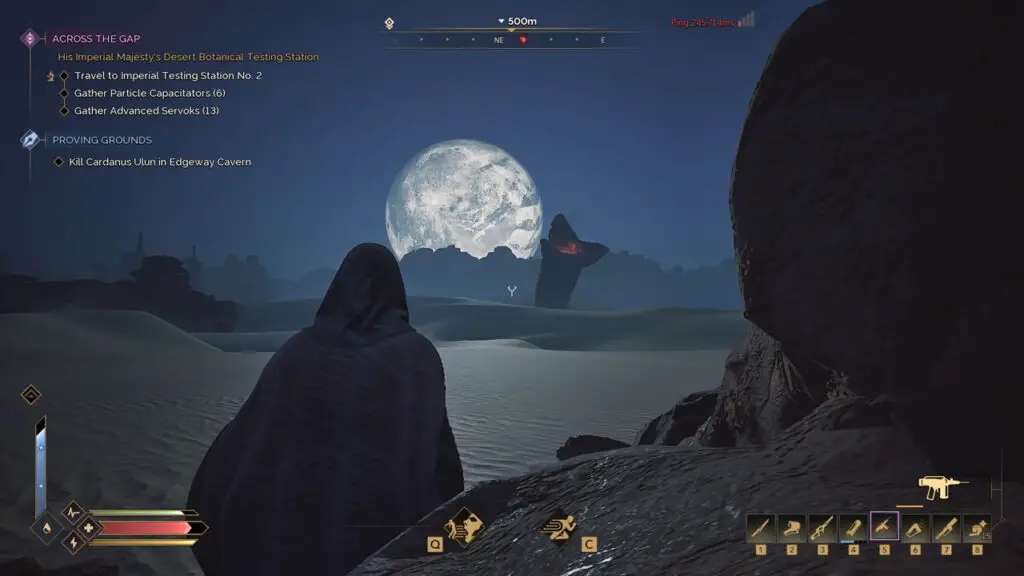
Dry sands are pearls beneath your character’s feet. Rough red rock are chiseled set pieces that produce a vista or glorious close-up from any angle. The night skybox, with the spacing guild Heighliner hovering above, is a picture from a Sci-Fi enthusiast’s dream. Barren dunes have a sparkling quality to them. Architectural components in the game are masterfully crafted renditions of what has been described and depicted in the Dune universe—especially the Harkonnen structures. Visually, the game is stunning, apart from a few graphical glitches here and there, and some character models not reaching the heights of the environment and buildings within which they reside.
Sounds, music, and ambient tracks are likewise as impressive as the visuals of Dune: Awakening, if not more so. Science fiction is what we’re talking about here… Dune is what we’re talking about… and players can hear it and sometimes feel tension and thrills from the game’s exceptionally composed, instrumentally compelling, atmospheric soundtracks or ambient music/sounds. Funcom’s sound design in Dune: Awakening gets as monumental a thumbs up as I can give.
Narrative Cork Board
Who-san Al Gaib?
It’s no secret that Dune: Awakening strayed away from the main story arch of Frank Herbert’s Dune. The developers mentioned so a while back (we reported on it as well) and the Dune estate has allowed as much. Right from the MMO game’s beginning, its awesome intro cutscene presents players with a brand-new story.
Think of it this way, while some of the narrative cork board’s strings were cut, many of the lore posts, characters, and Dune terminology remain. However, the remaining information has different connections and new links. The major difference between Frank Herbert’s Dune and Funcom’s Dune: Awakening is the absence of Paul Atreides—which creates an entirely new series of events:
The game’s story includes Lady Jessica having a daughter named Ariste; Lady Jessica catching Dr. Yueh before he betrays House Atreides; the Atreides surviving the initial battle of Arrakeen; the emperor becoming enraged by their survival, subsequently sending the Sardaukar down to Arrakis to ensure the flow of spice; Fremen being annihilated by the Sardaukar forces sent by the emperor (further in-game narrative suggests that the Fremen are potentially not eradicated); a battle of assassins emerging as a result of the previous events; and your player character being sent by the Reverend Mother to Arrakis to “Find the Fremen,” and “Wake the Sleeper.”
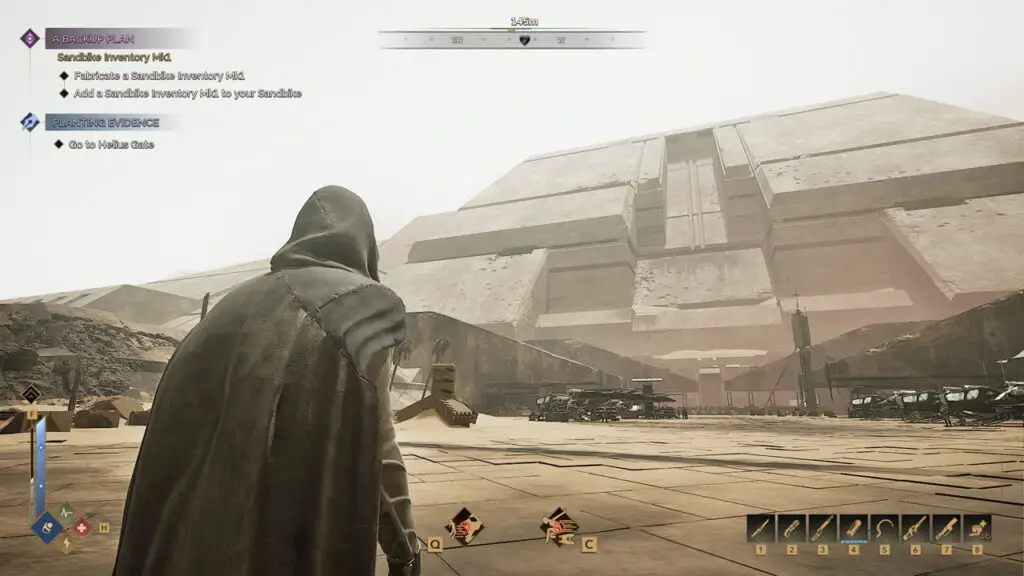

So, that’s the big popcorn liberty that Funcom takes for the sake of creating the narrative surrounding Dune: Awakening. But, there are other narrative sacrifices made for the purposes of gameplay as well, such as the water abundance (though the developers still narratively suggest that the water is scarce on Arrakis), male Bene Gesserit (a reason is provided in-game for this), faction absurdities, multi-class narrative conflicts (who in the books is a swordsmen, trooper, planetologist, mentat, and a Bene Gesserit all in one?), just to name a few diversions from Dune lore. Players will, however, find familiar bits of information and stumble on characters straight out of the books. For the most part, Funcom is authentic to the lore elements—outside of those exceptions made for gameplay purposes. The overall story, at present, is lackluster in part one, though, it gets more interesting in part two.
Multiplayer/Endgame
Personally, I have yet to experience endgame in full. However, there’s plenty of discourse concerning the endgame of Dune: Awakening, a section which, until recently—as the developers just announced a PVE section to the deep desert—was exclusively PvP based. Judging off the criticisms of the current PvP conditions, and the recently added PvE elements, the endgame needs some work. Endgame in Dune: Awakening is meant to be played in a guild or other player-made groups, so for solo players like myself (someone who is not unwilling to join a guild, I just haven’t yet) the endgame is currently a dead-end, even with the addition of the new PvE areas—as the new areas appear to exist simply for farming for more gear; the PvE endgame did not come with any additional narrative components or unique gameplay mechanics, as far as I’ve seen.
For group players, however, there are mixed reactions to Dune: Awakening’s endgame, with some players noting an overall toxic vibe and an unfair meta, while other players defend what exists and claim to enjoy the endgame PvP. From what I’ve researched, there’s a significant amount of criticism directed towards this part of the game. Essentially, the endgame was designed to operate in a certain way, but it’s currently not operating that way because of how players are treating it and approaching it.
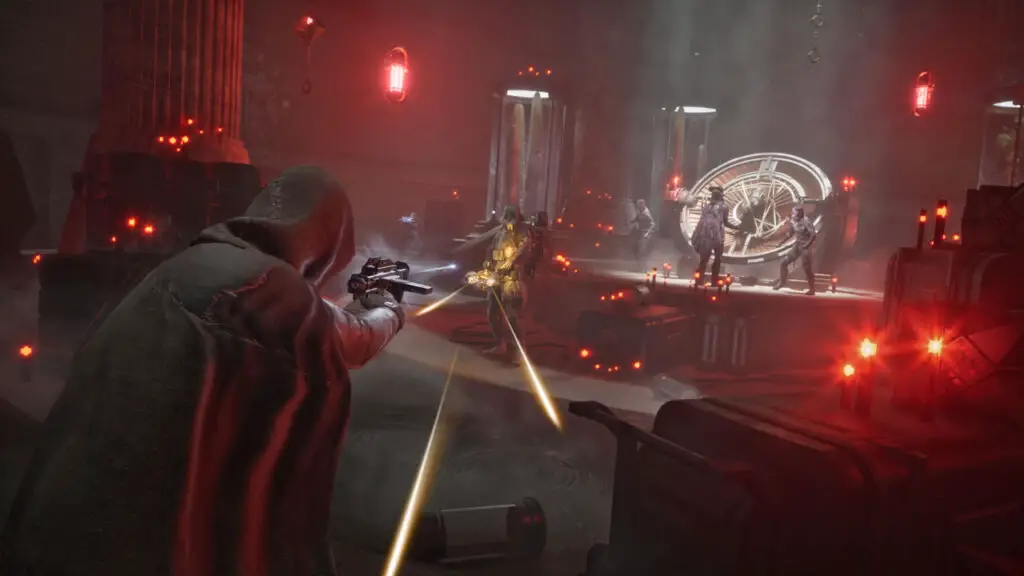

Multiplayer, on the other hand…. Dune: Awakening is multiplayer… though, apart from numerous player housing constructions built around the map by other players, I rarely ran into any of my adventuring counterparts outside of the main faction bases and towns. At endgame, multiplayer is more prevalent, but because the endgame is lacking, so too is the multiplayer.
Verdict
Dune: Awakening is a multiplayer survival video game that is fair and phenomenal in its survival mechanics, features tremendous visuals and sound design, contains a fine-enough combat system, offers a large and interesting Arrakis to explore, and has a good story with a few popcorn liberties concerning fundamental Dune Lore. However, the game currently lacks in its endgame, has some pretty dry character dialogue choices, has issues with the character class system, and could use a more interesting Part One of its story. I will say, however, that Funcom does understand why people love Dune, and apart from the divergence from Frank Herbert’s story, Dune: Awakening presents an authentic Dune experience. I had a great time in the over 30 hours that I played of Dune: Awakening, but this MMO game has its areas for improvement as well.
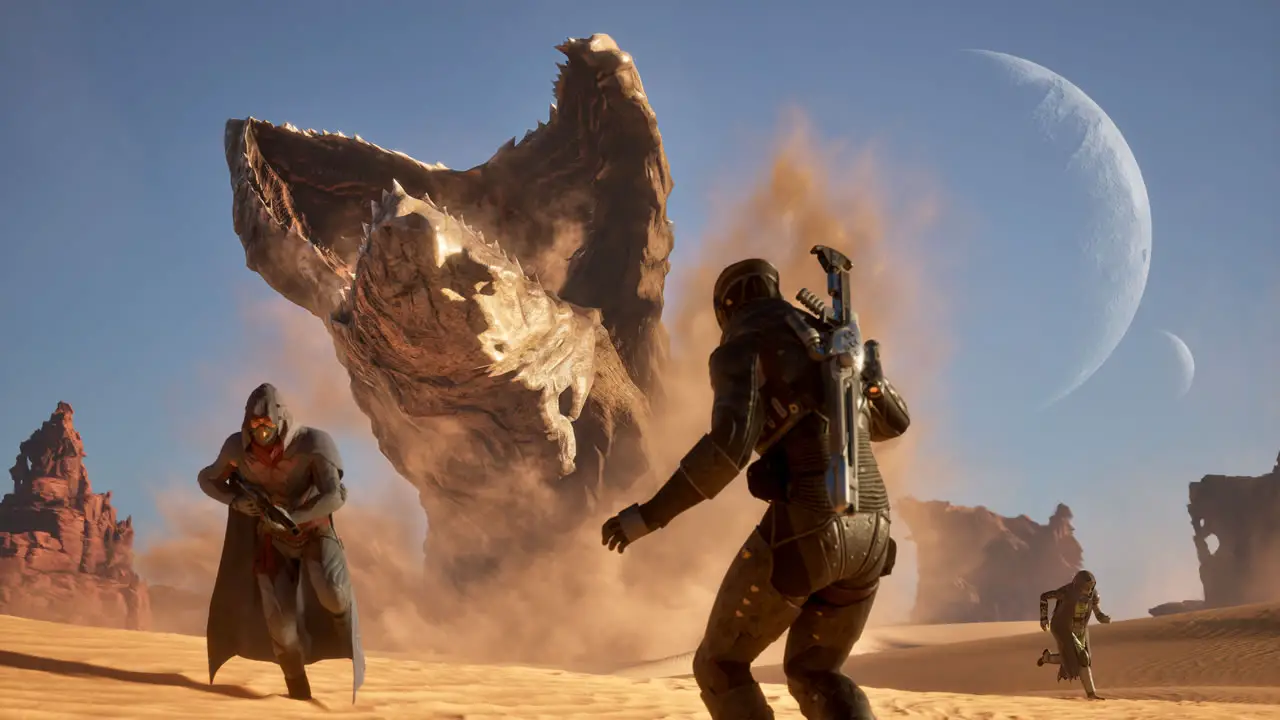
Thanks to Funcom and Legendary for providing Dune News Net team members with review copies of Dune: Awakening.


